Effective Airway Management with the Pit Crew Rapid Sequence Intubation Approach

Effective Airway Management with the Pit Crew Rapid Sequence Intubation Approach
DISCLAIMER
This blog contains discussions and general information about medical emergencies and other health topics. The information in this blog and in other related resources is not meant to be medical advice, and it should not be taken as such. The information contained in this blog should not be used in place of a medical doctor’s advice or treatment. If you or someone else has a medical concern, you should talk to your doctor or seek out other professional medical care. The opinions and views on this blog and website have no connection to those of any school, hospital, medical facility, or other organization.
Introduction
In emergency medicine, mastering rapid sequence intubation (RSI) is more than a procedural requirement; it’s a life-saving skill that underscores effective airway management. For healthcare providers working in high-pressure environments—from paramedics in the field to ER physicians—RSI is a critical tool for stabilizing patients in respiratory distress or severe trauma. These situations demand not only technical precision but a cohesive team effort where each clinician plays a role in a carefully orchestrated sequence of actions.
The online, self-paced course, Pit Crew RSI: A Team Approach, was built with these demands in mind, training healthcare providers in a structured, role-driven approach to RSI. Each team member is assigned a specific role to enhance timing, communication, and safety, all of which are essential for optimal patient outcomes. The course goes beyond the fundamentals of RSI to reinforce a method that can reduce errors, enhance team synergy, and elevate care standards in the most critical moments.
Why Airway Management Matters
In emergency settings, airway management is often the defining factor between life and death. For patients in critical condition—whether due to severe trauma, or respiratory failure—rapid sequence intubation (RSI) offers a structured and efficient way to secure the airway swiftly and reliably. RSI differs from other intubation methods by combining sedation and paralysis in a carefully timed sequence, minimizing the risk of aspiration and other complications, which is vital when seconds can make a profound difference.
However, performing RSI is far from straightforward. It requires an in-depth understanding of airway anatomy, pharmacology, and the physiological changes that occur in critically ill patients. Each step in RSI—pre-oxygenation, administration of sedative and paralytic agents, and placement of the endotracheal tube—demands precision and experience. Any misstep can have severe consequences, making it essential that healthcare providers not only understand the procedure but are fully prepared to execute it flawlessly in high-stakes scenarios.
This is where the Pit Crew RSI approach becomes invaluable. By organizing each team member’s role in advance, the Pit Crew method allows healthcare teams to perform RSI with an efficiency and coordination that reduces errors and optimizes patient outcomes. This approach is particularly crucial in unpredictable environments where a well-orchestrated team response can save lives.
What Is the Pit Crew Approach?
In high-pressure situations, success depends not just on individual skill but on a team’s ability to perform seamlessly together. This is the principle behind the Pit Crew approach to rapid sequence intubation (RSI), where each healthcare provider assumes a specific role, much like a motorsport pit crew. In racing, a pit crew operates with laser-focused efficiency, with each member handling a precise task—tire changes, fueling, adjustments—coordinated in split seconds to get the car back on the track. Similarly, the Pit Crew RSI approach organizes medical teams to perform RSI with unmatched precision and timing, where every member’s role is predefined and essential to the collective goal of securing the airway quickly and safely.
In the Pit Crew RSI approach, responsibilities are allocated to reduce delays, minimize risks, and maximize patient safety. From medication administration and airway preparation to equipment management and patient monitoring, each team member executes their role, fully synchronized with the others. This coordinated approach not only enhances efficiency but also significantly reduces the potential for errors that can arise from miscommunication or procedural delays, making it ideal for both prehospital and in-hospital settings.
The Pit Crew RSI methodology helps healthcare teams function as a cohesive unit, ensuring that RSI is performed with the level of accuracy and speed demanded in critical care. This approach also reinforces structured communication, situational awareness, and a clear chain of responsibility—all of which are critical for successful airway management under pressure.
Who Is This Course For?
This course is designed for a wide range of healthcare providers who may be involved in performing or assisting with rapid sequence intubation, including:
- Doctors
- Paramedics
- Nurses
- Medical and paramedical students
- Basic Life Support (BLS) providers
- Advanced care providers
Whether you are a student or working in an ambulance, emergency room, or intensive care unit, this course will provide you with the tools you need to improve patient outcomes during critical interventions.
Key Learning Outcomes
By the end of the Pit Crew RSI: A Team Approach course, participants will be able to:
- Define Rapid Sequence Intubation (RSI) and understand its purpose in emergency airway management.
- List the indications, contraindications, and precautions associated with RSI.
- Identify the key anatomical structures of the upper and lower airways and recognize factors that predict a difficult airway.
- Explain the Pit Crew approach to RSI and understand the STEADY mnemonic, a tool that helps guide the team through the RSI process.
- Describe various oxygen delivery devices and their use during RSI, including nasal cannula, non-rebreather, bag valve mask, and mechanical ventilators.
- Demonstrate knowledge of key patient monitoring devices, such as SpO2, EtCO2, and non-invasive blood pressure monitoring, to ensure patient safety throughout the procedure.
- Perform key airway management techniques, including basic airway maneuvers, the insertion of airway adjuncts (e.g., oropharyngeal and nasopharyngeal airways), bag valve mask ventilation, and laryngoscopy.
- Recognize and manage potential complications during RSI, including the use of contingency plans (Plan B and Plan C) and alternative airway devices.
- Deliver post-intubation care to ensure ongoing patient safety, using the “Safe Care” mnemonic.
The Course Structure
This self-paced online course consists of interactive modules, audiovisual content, and practical demonstrations that ensure learners have a thorough understanding of each component of the RSI process. With a focus on engagement and practical application, the course includes:
- Interactive Flashcards
These cover the definitions, purpose, and critical components of RSI, helping learners solidify their understanding of the procedure’s significance. Flashcards also outline important risks and contraindications that healthcare professionals need to be aware of before performing RSI.
- Video Lessons with Pop-Up Interactions

- Virtual Skills Demonstration Labs

- Patient Monitoring Tools
- The course covers critical patient monitoring tools, such as SpO2 (oxygen saturation), EtCO2 (end-tidal CO2 monitoring), and non-invasive blood pressure (NIBP) monitoring, which are crucial for assessing patient status during and after RSI. Learners will understand how to use these devices to track patient outcomes and respond to any complications that may arise during the procedure.
- Branching Scenarios
- Interactive scenarios allow learners to choose whether they are working in an in-hospital or pre-hospital setting. Each pathway is tailored to the learner’s specific environment, providing practical, real-world application of the Pit Crew approach in their daily practice.
Why Choose This Online Rapid Sequence Intubation Course?
The Pit Crew RSI: A Team Approach course is not just a training program—it’s an investment in your ability to save lives. Whether you’re a seasoned professional or new to emergency airway management, this course offers a comprehensive and immersive learning experience that prepares you for the realities of the emergency room, ambulance, or ICU.
The Pit Crew approach is proven to improve the efficiency of life-saving procedures like RSI. By taking this course, you will:
- Enhance your teamwork and communication skills, which are critical in high-pressure situations.
- Master the use of critical airway management tools and techniques, ensuring you can provide the highest level of care to your patients.
- Learn how to manage difficult airways and troubleshoot complications effectively, minimizing risks to your patients.
- Improve patient outcomes through structured, evidence-based care that ensures safety and efficiency.
Continuing Education Units (CEUs)
Upon successful completion of the course, participants will be awarded 6 Clinical CEUs, accredited by the Health Professions Council of South Africa (HPCSA). These CEUs are essential for maintaining your professional credentials and demonstrate your commitment to continuous learning and improvement in your practice.
 HSCTSA – Online Rapid Sequence Intubation Course
HSCTSA – Online Rapid Sequence Intubation Course
In an emergency, every second counts. The Pit Crew RSI: A Team Approach course equips you with the skills, knowledge, and confidence you need to perform one of the most critical procedures in emergency medicine—Rapid Sequence Intubation. With a focus on teamwork, precision, and patient safety, this course ensures that healthcare providers at every level are prepared to face the challenges of airway management with confidence.
Enroll today and take your airway management skills to the next level. (click here to enrol)

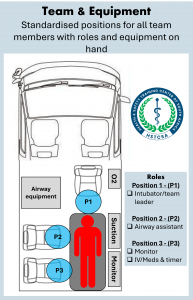
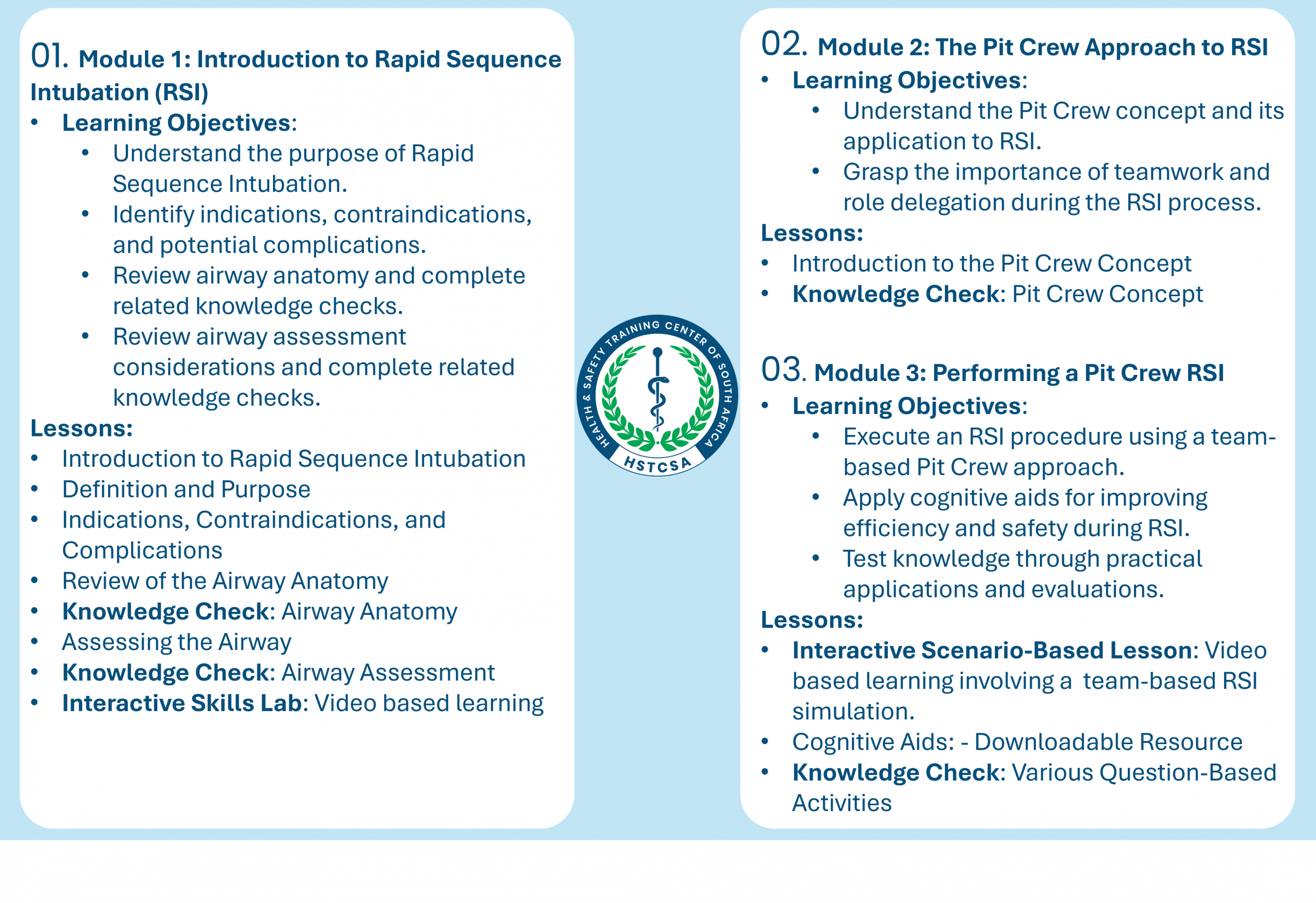
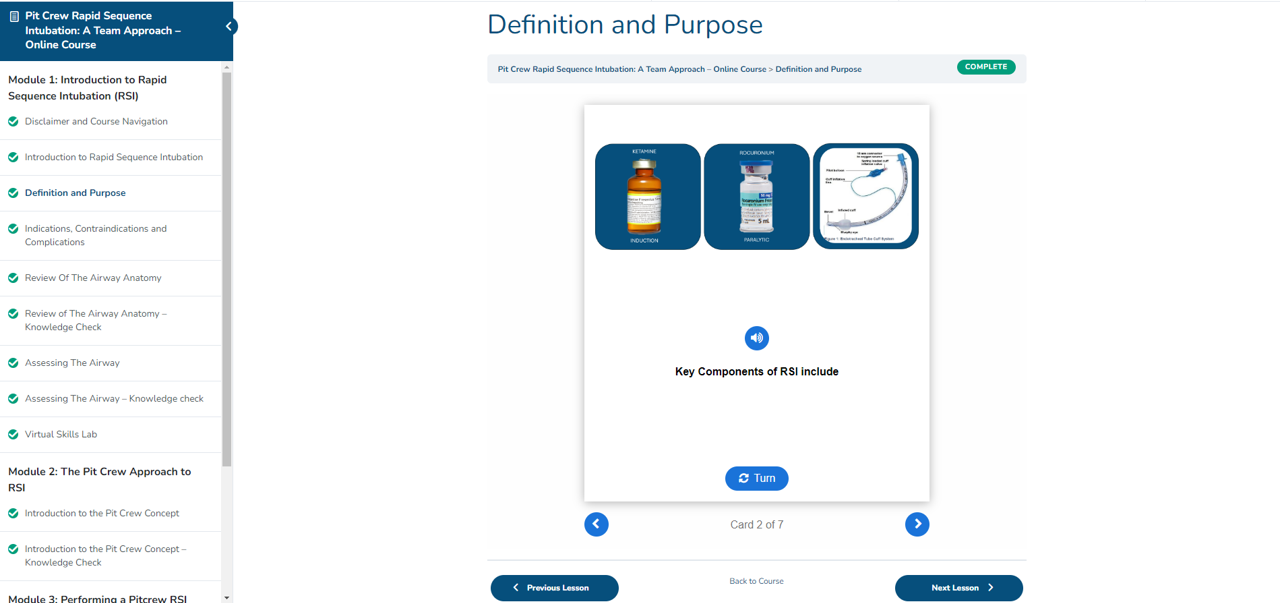 These cover the definitions, purpose, and critical components of RSI, helping learners solidify their understanding of the procedure’s significance. Flashcards also outline important risks and contraindications that healthcare professionals need to be aware of before performing RSI.
These cover the definitions, purpose, and critical components of RSI, helping learners solidify their understanding of the procedure’s significance. Flashcards also outline important risks and contraindications that healthcare professionals need to be aware of before performing RSI.

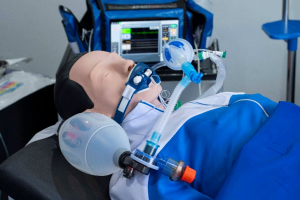 HSCTSA – Online Rapid Sequence Intubation Course
HSCTSA – Online Rapid Sequence Intubation Course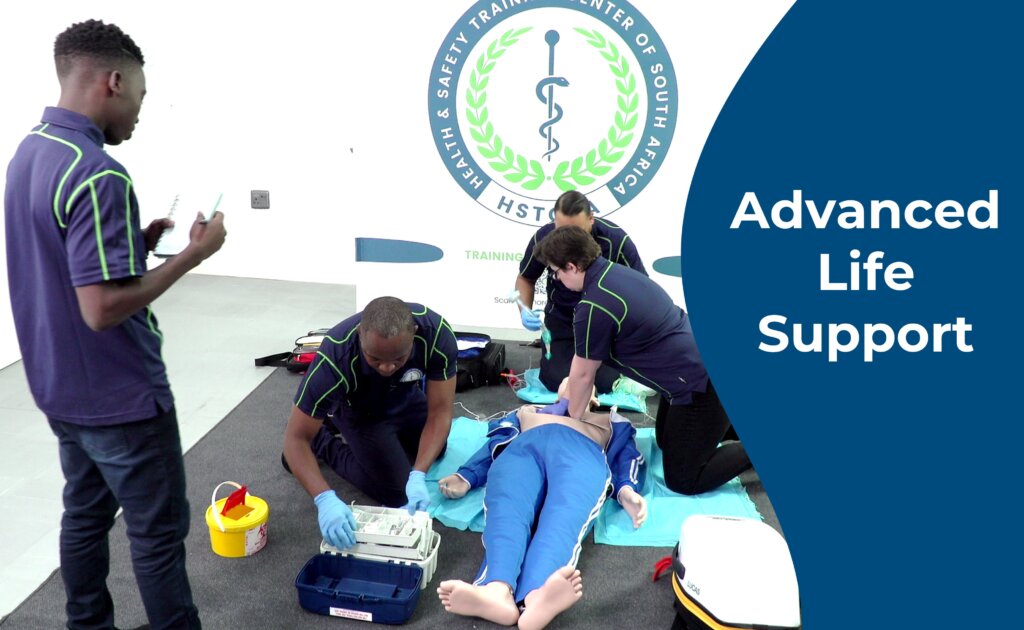


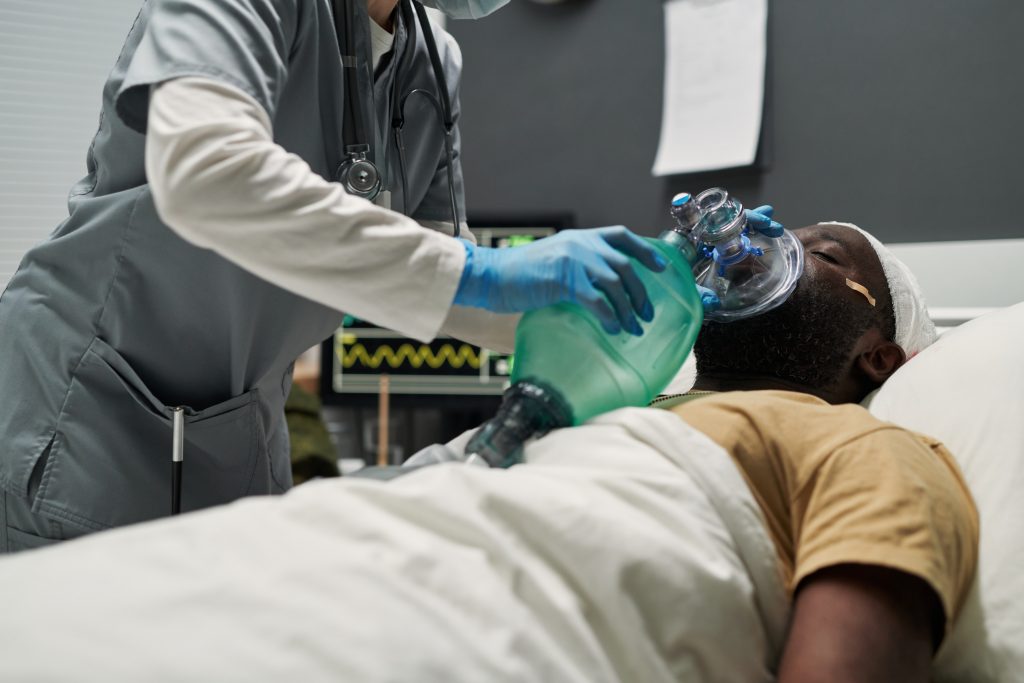
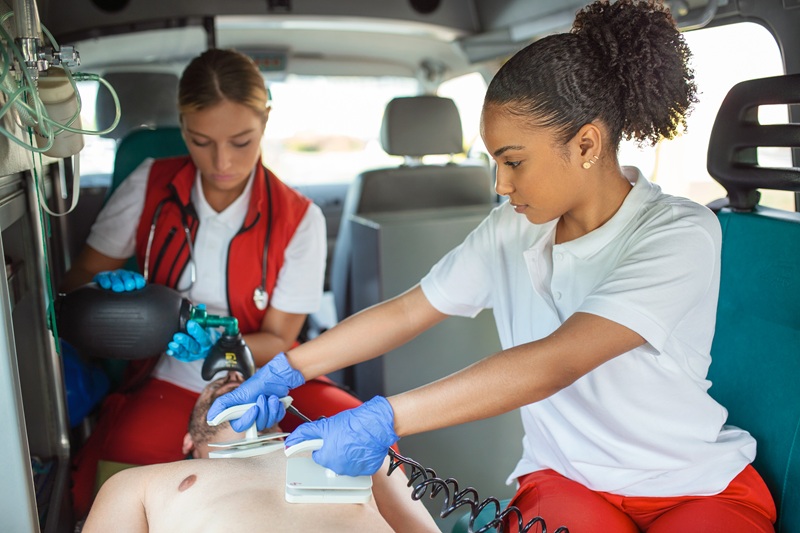
Responses